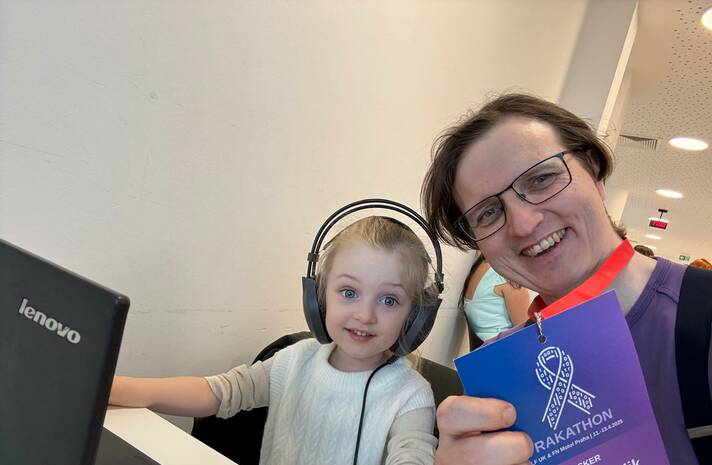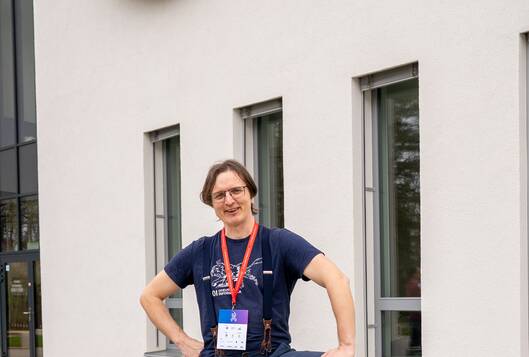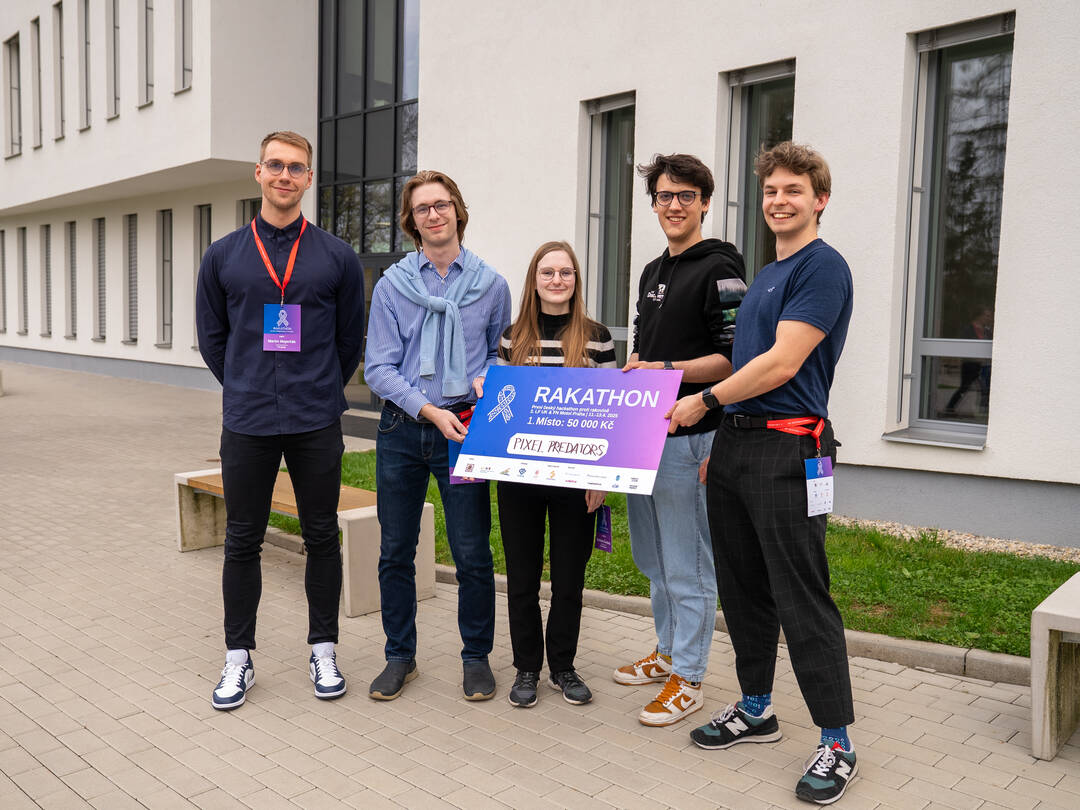More than one hundred and fifty young computer scientists, doctors and other experts have been involved in the development of technologies for better care of cancer patients. In addition to offers of cooperation with oncologists, the winning teams shared prizes totalling 150,000 crowns.
Winning solution improves treatment safety in radiotherapy
The Pixel Predators team won the main category of the competition with their project RadioProtect. Their solution focused on making radiation treatment safer for patients during cancer treatment. The main prize, a cheque worth CZK 50,000, was presented to the team by the director of Motol University Hospital, Petr Polouček, MD, MBA.
While other competitors focused on training segmentation tools for individual 2D slices of CT images, Pixel Predators came up with an original approach: for each pair of CT images of patients, they searched for a new transformation of the entire 3D image. As a result, they were able to detect changes between the planning and control images much more accurately. This is because in current clinical practice, doctors say, no similar control mechanism exists - decision-making is done visually only. The Pixel Predators solution enables an automated and objective comparison of the two images: it not only finds the necessary directional corrections when positioning the patient, but also highlights unexpected changes in the irradiated structures. This avoids the risk of irradiating inappropriate structures that could lead to serious complications.
The technology, which uses artificial intelligence methods and optimization to increase the safety of treatment, aroused the immediate interest of doctors from the oncology department of Motol University Hospital, who established cooperation with the team to put the system into practice. The dean of the 2nd Medical Faculty of Charles University also immediately expressed interest in further cooperation.
The winning team consisted of Jan Hlavsa, Filip Oliver Klimoszek and David Korčák, students of the Open Informatics bachelor's programme at the CTU Faculty of Science, and Barbora Čurdová, a student of Bioinformatics and Chemical Informatics at the University of Technology in Prague, who enriched the team with a deeper understanding of the biological context and the context of medical data. Together, they were brought together by a common interest in the use of technology in healthcare - they have met in the past during various academic and extracurricular activities. The team members divided tasks between them according to their specialisms, but the overlap of knowledge meant that they worked flexibly and often consulted with each other on key steps.
"Interdisciplinary cooperation was crucial to our success. The technical skills allowed us to quickly design and implement a workable solution, and the knowledge of bioinformatics allowed us to understand the data itself and the meaning of the individual parameters we were working with. We were thus able to create a design that was not only technologically sound, but also professionally meaningful and practically applicable," says Jan Hlavsa.
The hackers voted for the Commited to Care team. Coming up with more efficient appointment scheduling
In addition to the main jury prize for the Pixels Predators team, the Commited to Care team took home the Hacker Prize. The team was formed by Radim Špetlík, a PhD student of the Department of Cybernetics at the CTU FELU, together with his wife Barbora Špetlíková. Their project RadMan optimizes the ordering of patients for PET scans and orders radiopharmaceuticals that have a very short half-life. In practice, this means that the scanner staff will be able to examine more patients more efficiently without unnecessary downtime and waste of expensive radiopharmaceuticals.
The solution converts the problem into a Mixed Integer Linear Programming problem and is the first of its kind. RadMan uses a combinatorial optimization method specific to the field of AI. Radim Špetlík added that a functional version of the system is already available on the radman.cz website and that the team plans to further develop it towards robust deployment in a hospital environment.
About the Rakathon 2025 hackathon
Rakathon 2025 was the first ever Czech medical hackathon focused exclusively on oncology. The event was held on 11-13 April 2025 at the campus of the 2nd Medical Faculty of Charles University under the auspices of the President of the Czech Republic Petr Pavel and the Ministry of Health of the Czech Republic. More than 150 programmers, doctors and other experts participated. It was organized by the Ceehacks team and AstraZeneca was the main partner.
The topics of the hackathon covered a wide range of challenges in cancer care - from artificial intelligence in diagnostics to optimizing chemotherapy or improving communication between doctors and patients. The hackathon showed the great potential of the connection between technological innovation and medicine.
For more information about Rakathon 2025, visit https://www.rakathon.cz/







